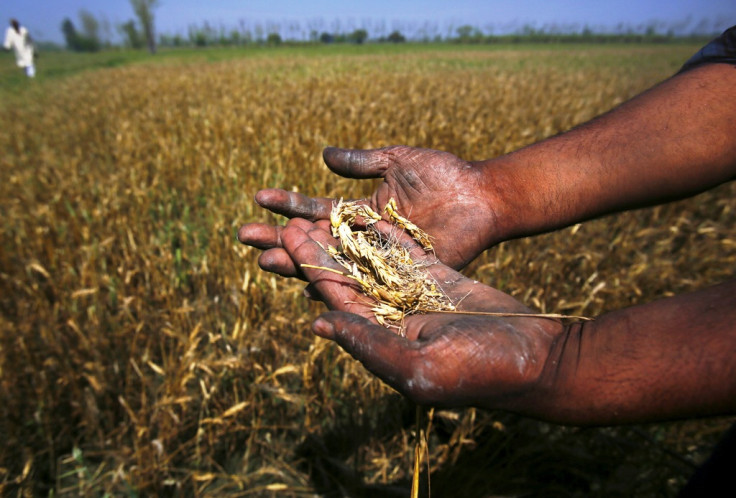Food System Shock Report: Mankind doomed if basic agricultural production doesn't soar by 2050

The future of the Earth is bleak if we do not quickly change our ways, a report has warned.
The population of the world will hit 9 billion by 2050, warns Lloyds' Food System Shock Report which was developed by Anglia Ruskin University's Global Sustainability Institute, which will place extreme pressure on the planet's agricultural sectors.
"The Food and Agriculture Organization (FAO) projects that global agricultural production will need to more than double by 2050 to close the gap between food supply and demand. As this chronic pressure increases, the food system is becoming increasingly vulnerable to acute shocks," claims the study which was published for the insurance industry and supported by the US and UK governments.
It adds that unexpected issues could reduce the global food supply, which is already under pressure, and "trigger a spike in food prices, leading to substantial knock-on effects for businesses and societies."
This, coupled with climate change, worldwide political tensions and water stress, could be devastating to humanity and is "plausible" according to the report.
In a rundown of what could happen, it says that wheat, maize and soybean – three staple foods across the globe – will be four times as much as they were in 2000, with the cost of rice soaring by 500%.
The result: "The increase in grain prices causes difficulties for some countries and food riots break out in urban areas across the Middle East, North Africa and Latin America. A number of net food importing sub-Saharan countries, including Sudan and Zimbabwe, confiscate grains held in warehouses to use as emergency food aid," the report reads.
"On the back of the deployment of the military in Kenya to manage food distribution, several terrorist attacks take place across the country, resulting in travel bans, and simultaneous bomb blasts occur on buses and in museums in Nairobi. A coup breaks out in South Sudan.
"In summary, quadrupled commodity prices and commodity stock fluctuations, coupled with civil unrest, result in significant negative humanitarian consequences and major financial losses worldwide."
On the bright side however, the report is based on hypothetical scenarios if the world's powerhouses do not act accordingly.
© Copyright IBTimes 2025. All rights reserved.






















